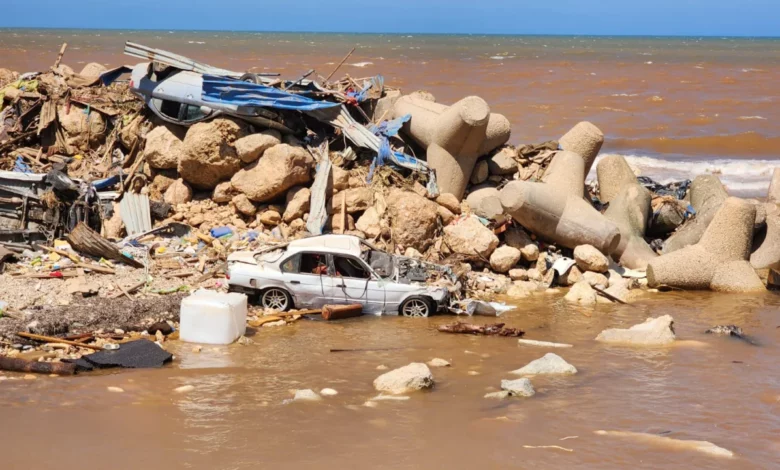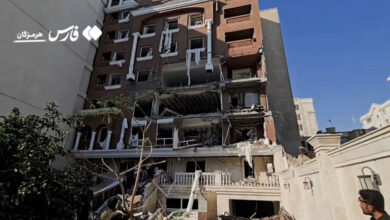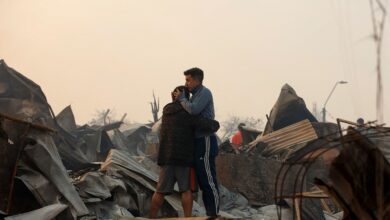
“The investigating authority initiates a criminal case against sixteen officials responsible for managing the country’s dam facilities,” the attorney general’s statement reads.
The coastal city’s mayor and several present and former water infrastructure authorities were among those detained.
Torrential rainfall and the bursting of the dams sent a huge wave of water through Derna on September 10, sweeping entire neighborhoods into the sea. Close to 4,000 people died in Libya’s floods and 9,000 more remain unaccounted for, according to the World Health Organization.
Protests erupted in Derna last week over the catastrophe, with locals demanding the removal of those in power.
The attorney general said Monday that it placed the 16 officials under pre-trial detention after interrogations. Prosecutors are also investigating others connected to the floods, especially any who may have benefitted unlawfully from the city’s reconstruction project.
“A request of an expanded investigation has been issued into the rest of those responsible for the Derna flood incident and others who mismanaged the reconstruction project and obtained illegal revenues because of this misuse,” the statement added.
Warnings about the dams
Derna is prone to flooding, and its dam reservoirs have caused at least five deadly floods since 1942, the latest of which was in 2011, according to a research paper published by Libya’s Sebha University last year.
The two dams that burst on Monday were built around half a century ago, between 1973 and 1977, by a Yugoslav construction company. The Derna dam is 75 meters (246 feet) high with a storage capacity of 18 million cubic meters (4.76 billion gallons). The second dam, Mansour, is 45 meters (148 feet) high with a capacity of 1.5 million cubic meters (396 million gallons).
Those dams haven’t undergone maintenance since 2002, the city’s deputy mayor Ahmed Madroud told Al Jazeera.
But the problems with the dams were known. The Sebha University paper warned that the dams in Derna had a “high potential for flood risk” and that periodic maintenance is needed to avoid “catastrophic” flooding.
“The current situation in the Wadi Derna reservoir requires officials to take immediate measures to carry out periodic maintenance of existing dams,” the paper recommended last year. “Because in the event of a huge flood, the result will be catastrophic on the residents of the valley and the city.”
Reporting contributed by CNN’s Nadeen Ebrahim, Laura Paddison, Sarah Sirgany, Celine Alkhaldi and Jomana Karadsheh.




